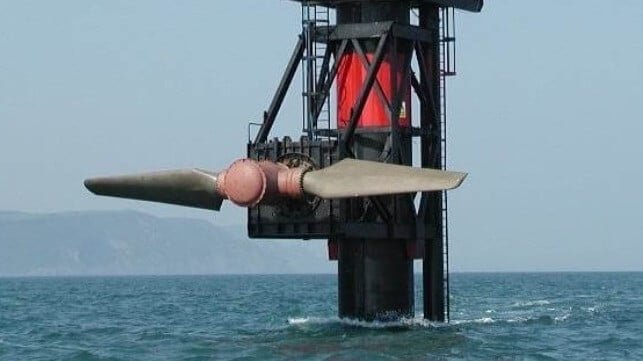The Potential of Ocean Currents for Clean Energy Generation
The world’s oceans cover more than 70% of Earth’s surface, and their currents hold immense potential for clean, renewable energy. Unlike other forms of renewable energy like solar and wind, ocean currents are constant and reliable, making them a promising source of power.
Harnessing the Power of Ocean Currents
Ocean currents contain kinetic energy that can be converted into electricity using turbines. Similar to offshore wind farms, these turbines would float on or just under the surface of the ocean, generating power that can be transmitted to shore through undersea cables.
Researchers have identified the eastern and south-eastern coasts of Africa as top potential locations for ocean energy production due to the strong currents in these areas.
Research and Development
Researchers have analyzed 30 years of water velocity data to determine the energy potential of ocean currents. By measuring the speed and direction of currents using drifting buoys equipped with sensors, they have calculated the energy density of different ocean regions. This data is crucial for assessing the feasibility of ocean current energy generation.
Current Testing Sites and Future Prospects
While prototypes of ocean current turbines have been tested since the 1980s, there are currently no operational systems feeding power to electrical grids. However, recent advancements in technology have paved the way for testing in various locations such as Florida, North Carolina, Japan, Taiwan, South Africa, and Mexico.
High-energy areas off the coasts of Somalia, Kenya, Tanzania, and Madagascar have been identified as potential sites for ocean energy production. These regions exhibit energy densities that surpass those of standard wind energy resources, making them ideal for clean energy generation.
Challenges and Opportunities
Although there are technical challenges in deploying ocean current turbines in deep waters, the proximity of high-energy areas to shore offers potential for nearshore installations. More research is needed to fully explore the energy-generating capabilities of African waters, especially in the Indian Ocean where data collection has been less extensive.
Project developers and investors play a crucial role in bringing ocean current energy projects to fruition. While the technology is still evolving and not yet commercially viable, the rapid advancements in the field offer hope for a sustainable energy future.
Conclusion
Ocean currents hold immense potential for clean energy generation, particularly in African waters with strong currents. With further research and investment, harnessing the power of ocean currents could play a significant role in combating climate change and meeting the energy needs of the future.
This article appears courtesy of The Conversation and may be found in its original form here.
Top image courtesy Fundy / CC BY SA 3.0

